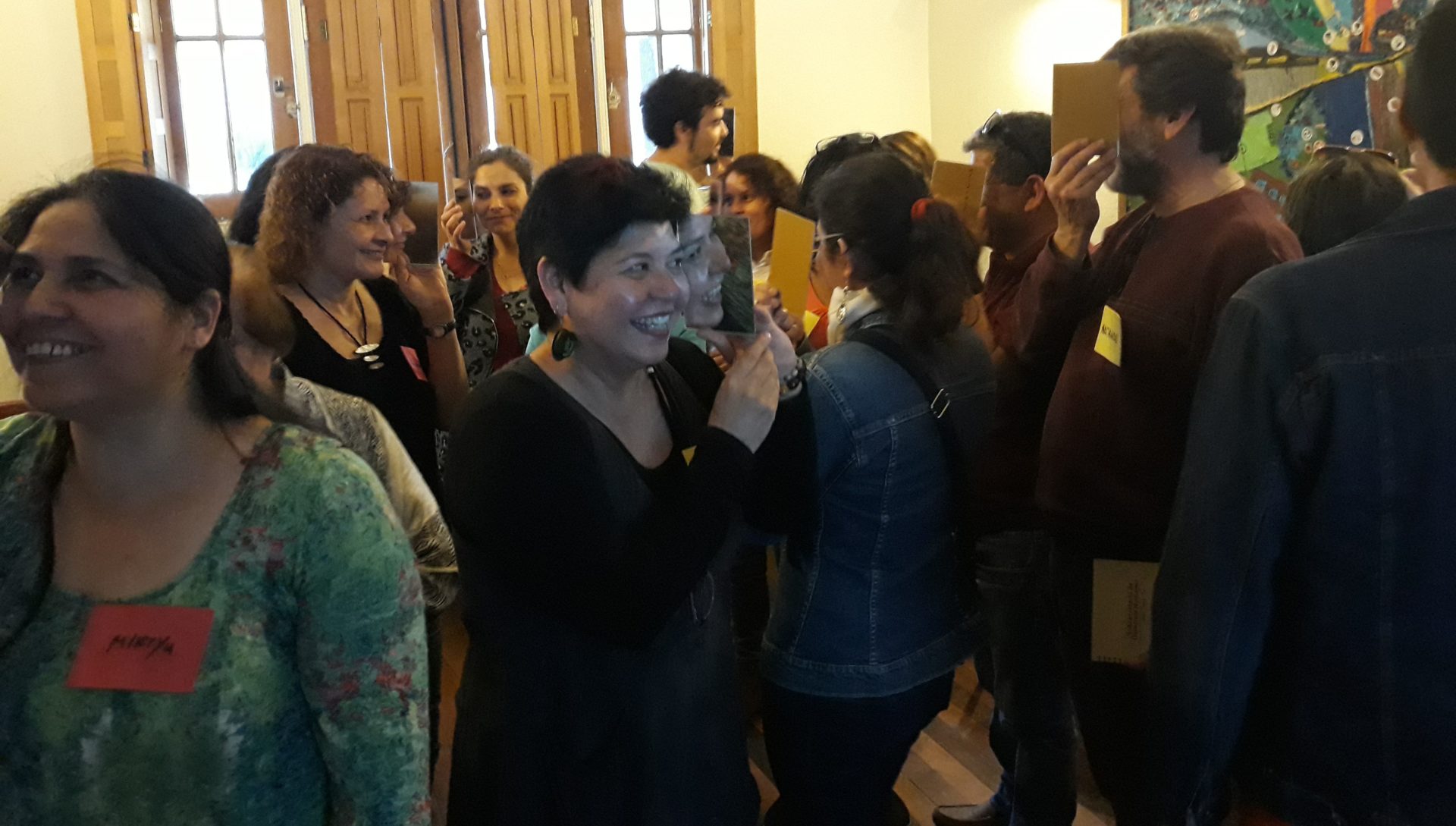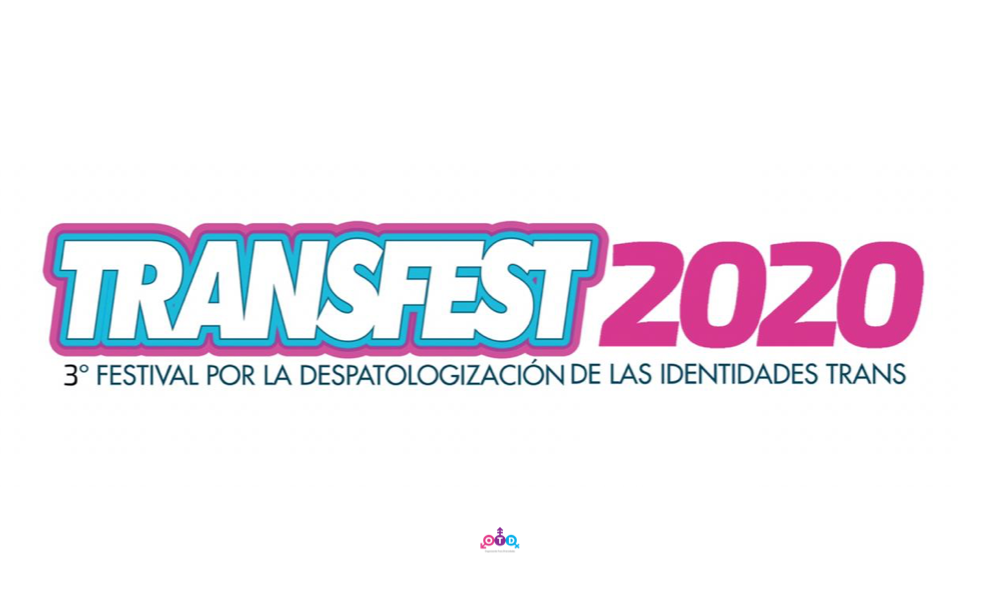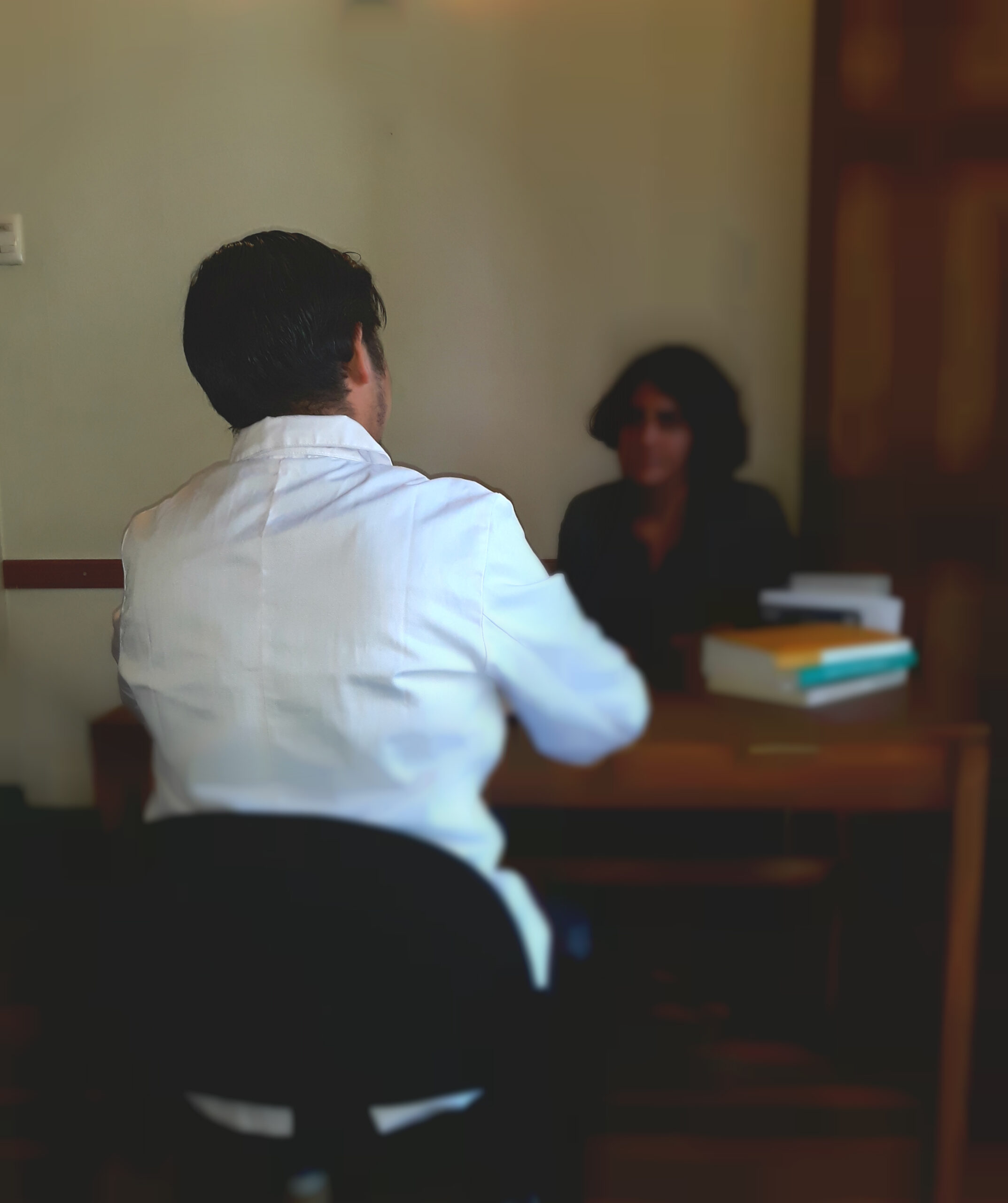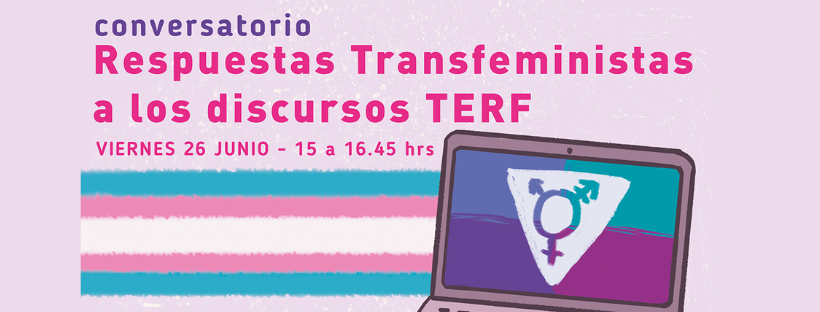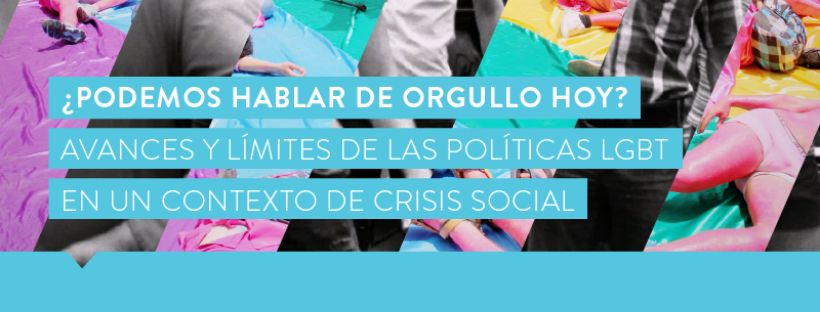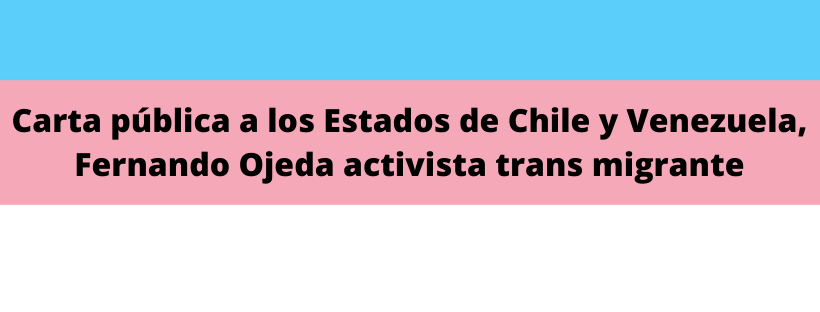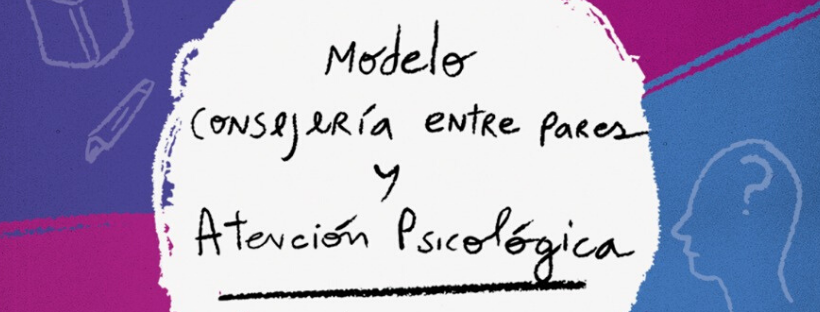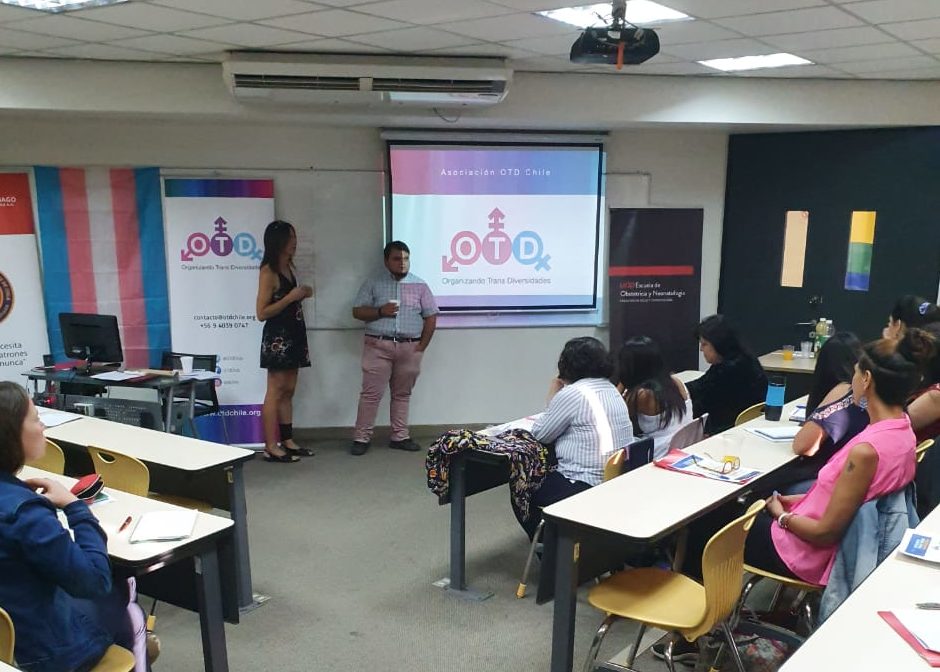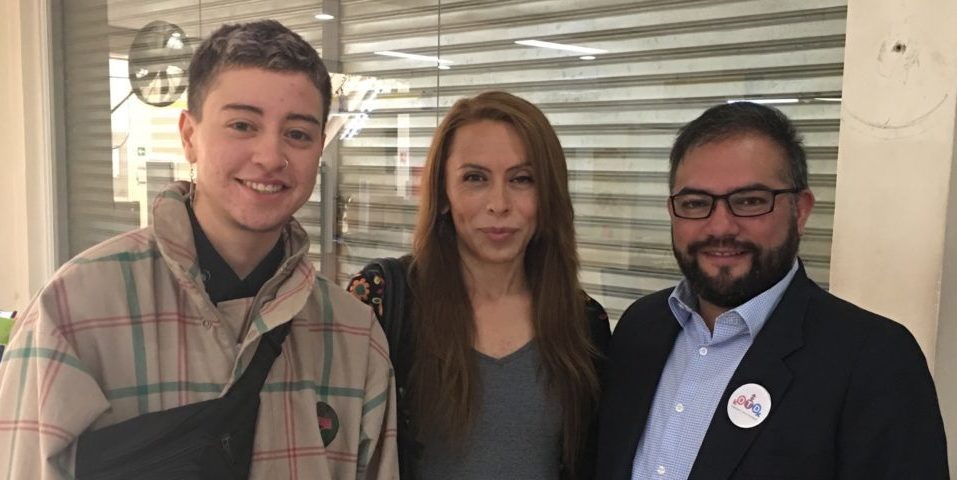When a trans person decided to socialize and express their identity, it is often one of the most important and essential steps in their life. Although there are many ways to do it, the reaction of the family and loved ones will always mark their history, for better or for worse. Organizing Trans diversities, OTD Chile has been working on this since 2014 and since this year arose a family meeting group (GEFF) that meets monthly to talk and share their transit experiences.
Family meeting
Last September 8th, the family of people who is in a gender transition met for the fourth consecutive month. In total, 15 adults arrived to the organization’s headquarter to talk about the trans experiences of their child and grandchild. There is a grandmother, four fathers and ten mothers.
The meeting begin with a presentation of one of the promoters of the initiative, Jimena Norambuena, founder member of OTD Chile and mother of a trans person of a non-binary identity, who does not identify as a man neither as a woman. Jimena welcomed and then take the word the family counsellor, Jessica Lillo, who voluntarily advises and guides the workshop.
Jessica begins with the dynamic of presentation, an imaginary wool that is thrown from one side to another. Each one begins to tell why is there. The subject of this workshop is the role that the family play when some of their members is trans. “I came for mi daughter Antonia, who since 3 weeks ago is Mati and I’m just understanding”, says one the mothers.
I came trying to understand, one can open the mind, today I feel stronger, I always see it like that, he founded peace here, my son of soul, was a girl and now I have a son, I knew it recently. There are some things that scared me, I knew it 4 weeks ago. I want to know, I want to learn, we have to step out of the individual, we have to unite, now he is happy and I want a more open and friendly world. This is my refugee, we are also in transit; these are some of the phrases that arise during the first dynamic.
The first question of the workshop was, what happened to you when your child said to you that is trans? “I feel alone”, said the first mom that took the word. Her relatives got away and judged her for letting her child live his/her identity. “If I do not let them respect inside my home, how it’s going to be outside”, was her final reflection.
“ I thought it was going to happen”, said the second mom, who recognizes that the hardest process was trying to avoid the reality. Her child told her a week before the workshop started. Armando, who is one of the workshop’ organizer and founder member of the association talk about the “shock”, which means that a child starts a gender transition.
“You do not realize how hard is, because you have never been questioned”, said, while projects in an image of a staircase showing the different spaces of discrimination: family, friends, public space, etc. It highlights how questioning, indifference and denial are part of the weight of living with a trans identity currently in Chile.
So, what to do? Armando describes the different tools both, legal and normative that are currently present in our country. The circular 21 of the Ministry of Health, the 0768 of the Ministry of Education, etc. Although it have little value in little inclusive spaces. One of the mother tells that her child talked with the adults of the school. “She/he had all the support. My son was always the same, although he was hid”.
Very different was the experience of another family, who even came to the Superintendency of Education after the school refused to respect their identity. He received the necessary support and today her child is called by her/his social name. She got confused at times and one of them, Jacqueline, participant of the unit of education and training of the association, OTEDUCA, hurries in correcting her.
Inviting her to do a pronouncement exercise. It is not indifferent how they call us, it is the first step for the recognition”, explains Jessica, who guides the workshop. The question for the past, history and photographs will soon arise. “You have to understand that they are the same person,” she explains, and the need to build bridges toward an agreement. “All the people always decide on our history, but when you are transgender that becomes more evident. We’re always doing a review and counting a part.”
After a break, which includes champagne and toast because the gender identity law finally went on to their last formality in Congress, they share a cake, smoke, talk and laugh as if they were part of a group of acquaintances that meets on a Saturday afternoon.
When the final reflection comes, everyone is more relaxed but with stronger emotions. The first tears turned up. “I’m mom of a trans girl”, said Karin, who is activist for her daughter’s identity for years. “I’m a mother who loves and all I care about is that they are happy”, said another one.
“Deep down is love, if we connect with that we are already fulfilling,” says Armando. Another mom thanked the space where she feels she is not walking alone. Then each one takes a small mirror to look themselves and see others to understand that, although the path is long and difficult, they are accompanied. Understanding that one of the biggest problems for people who is in gender transition is in society and not in themselves.
Cisgender Couple of Trans Persons Group.
The Group of families and extended families, GEFF, arises because of the importance and the need to build a space of reception, accompaniment and linkage between the trans families, explains the family counselor Jessica Lillo, who gives a technical guide to the mafathers who make it up.
This self-convened group of relatives, who became activists of the trans cause for their children, also gives counseling to other family members. “The goal is to accompany the family in transition, releasing of guilt, fears, myths and prejudices, so that they can do their best and accompany their children in the transition process,” explains.
“The revelation of the trans identity triggers two processes: the process of the trans person and the process of the family, likewise the latter must resolve the acceptance of the trans child and the assimilation of the new reality. In this process, the family is usually stressed and fears arise, defense mechanisms such as denial and feelings of guilt and loss, “she says.
For this, they took advantage of the organization’s internal wealth and the successful experience of family members who respectfully coexist with their children’s transgender identity. “Peer counselling, between equal people sharing a common reality, is a strategy that allows the emergence of a horizontal dialogue, where people share a sense and common life’s experiences, such as childhood and/or transgender adolescence. Its key advantage is in the depth and closeness of the conversation, helping to reduce the anguish, deliver information and support to those who consult.
In 2016, 8 mafathers were summoned to a training workshop, based on models of Popular Education for adults and a participatory methodology. In total there were 8 hours where they defined what counselling is; they learned from family counselling, as well as basic techniques and communication skills. Also, they did a practical counselling workshop and how to practice self-care, which was carried out by Facundo Ríos Velásquez, player and trainer of counsellors and advisors on HIV/AIDS.
Jessica, what is the importance of this work for the reception of trans people?
A family that look at themselves, recognizes their weaknesses and strengths, that makes efforts to understand and accept themselves as a trans family, seeking information and supporting tends to strengthen their relationships and family ties, which benefits their transgender children. It gives them security and protected spaces. You don’t need to have or be a super family or a perfect family, that’s just utopia. The families are composed of common people who for various reasons and life projects are together.
What differentiates families with transgender people from a cisgender family is their ability to recognize themselves as such, understanding that the transition is not only an issue of the trans person, but also involves each person who make up the family, generating deep changes in the acceptance of either their child, brother, trans mother or father and the recognition of gender identity as a human right.
Translated by: Javiera Saavedra R.
